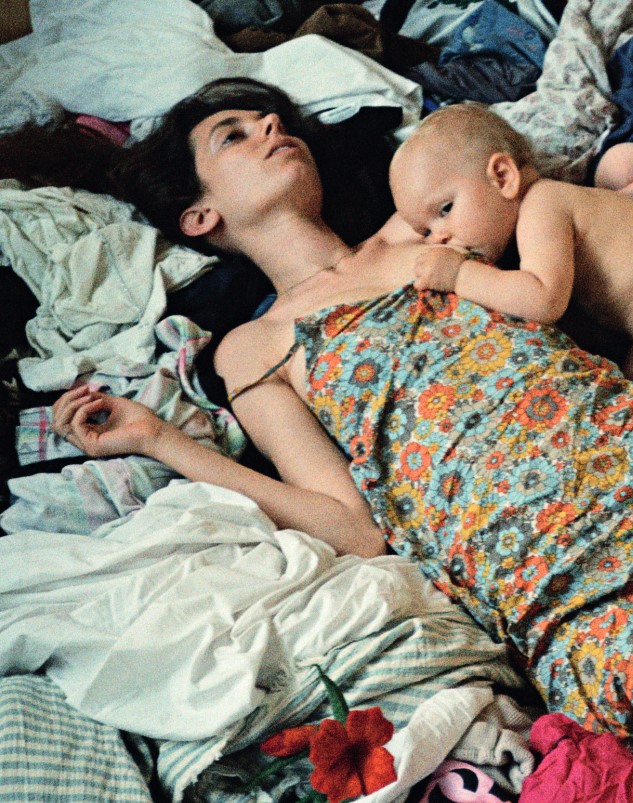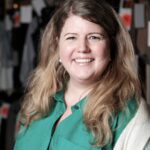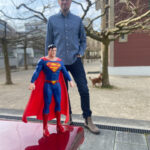«Historically, textiles have been community-building.»
Five Questions to Aviv Szabs
Aviv Szabs is an Israeli artist living in Switzerland. In 2022, she showed her self-portrait «It’s inspired by Ophelia, whereas I am drowning in laundry» at the Museum Langenthal. The photo reflects her experience as a young Jewish mother and foreigner in rural Switzerland. In the Jewish Museum’s book «Birth Culture» (Schwabe, 2022) Naomi Lubrich spoke to her about motherhood, laundry and the painting «Ophelia» by Sir John Everett Millais.
Naomi Lubrich: Aviv, you are an artist. What is the story behind «It’s inspired by Ophelia whereas I am drowning in laundry»?
Aviv Szabs: In July 2021 I arrived in Riedtwil with my husband and one year old baby. I spent winter days at home; I was an immigrant and a young mother, singing Hebrew baby songs 24/7. I found myself with a huge pile of dirty clothes filling four bags: One full of my husband’s clothes, one full of our daughter’s clothes, one full of home textiles and one full of my own clothes which I hadn’t managed to wash on time. I had a new washing machine – and an inner tension of being in charge of the domestic sphere and being an artist exposed to the public. I began to see the daily actions of cleaning and nourishing out of the context of the household and decided to move the dirty clothes into an exhibition space. They were on display at the Kunsthaus Langenthal from December 2, 2021, to January 16, 2022.
NL: Which Ophelia is your photo referring to?
AS: I’m referring to the painting «Ophelia» by Sir John Everett Millais (1851–1852). His Ophelia fell into the river while picking flowers and slowly drowned, singing all the while. My photograph is printed in the same size as Millais’s painting, 76x112 cm, and it is shown with me singing Hebrew songs for my baby. The photograph of me breastfeeding my daughter while I’m singing to her and drowning in laundry was taken on our bed by my husband Emanuel Baumann. Living in an open space, which used to be an old metal foundry, gives us all creative freedom, even our daughter. We have no walls, a lot of space to move, to experiment and to play with our everyday objects.
NL: How are you as an Israeli adjusting to life in rural Switzerland?
AS: For me, being in the countryside means being close to nature, feeling the four seasons to their extreme. While walking outside, I often feel like I am inside a painting. The country is a source of inspiration and relaxation but also of solitude. The women in the past were bound to the house and to the decisions of the men. Is it possible that women today have similar feelings, although their reality is different?
NL: Is there such as thing as «Jewish laundry»?
AS: Historically, textiles have been community-building. In our time of individualized spirituality, the actions of folding clean laundry remind me of my childhood, when I would watch my mother folding clothes for all the members of the family and sorting them by groups. It brings me back to myself and to home.
NL: Does your daughter understand Shabbat?
AS: For my daughter Alisha, Shabbat starts by giving a kiss to Abba and Imma when we light the candles. She reminds us, in case we forget, to give a kiss after saying «Shabbat Shalom.» In the countryside the silence on Shabbat is beautiful. Being close to our surroundings, to nature, to our neighbors, to home, gives our family peace for the week to come.
NL: Aviv, thank you very much for this conversation.
verfasst am 13.03.2023
Aviv Szabs, Berne



